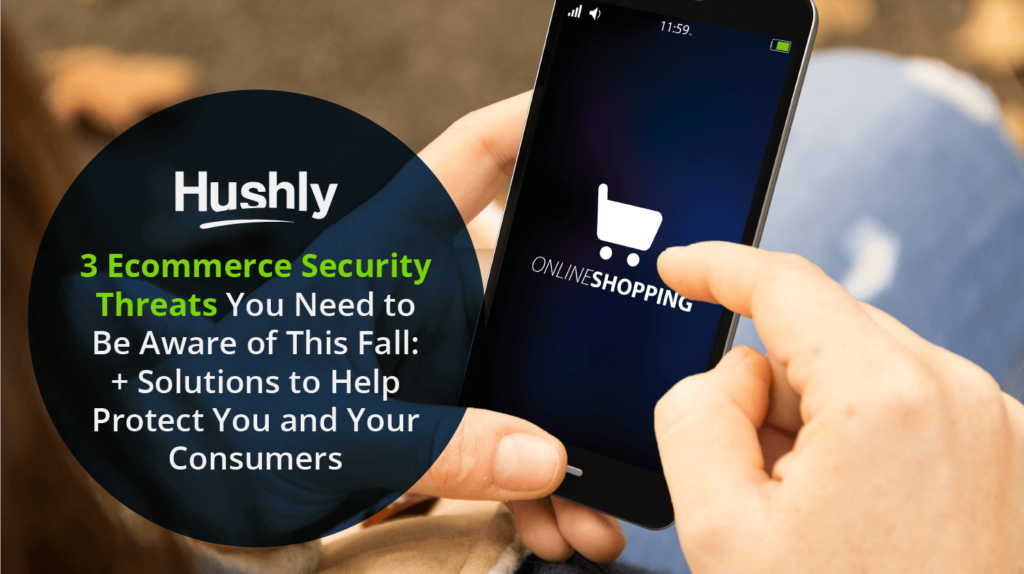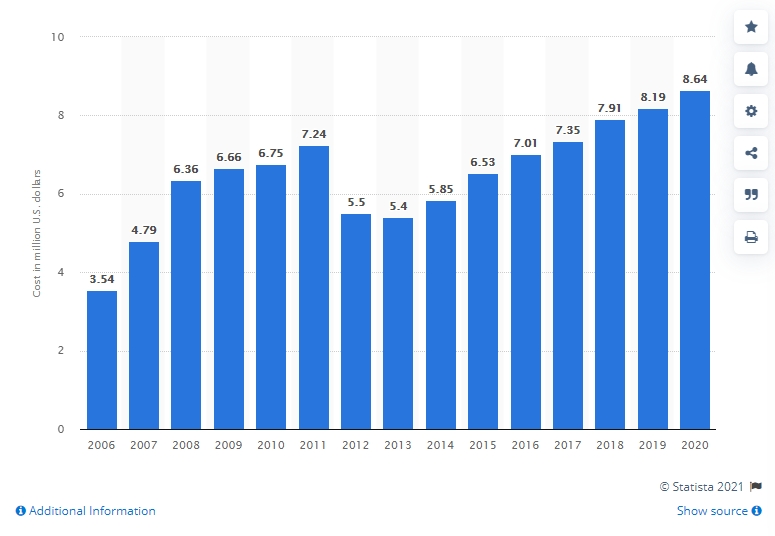Filters
Content Type
Topic
3 Ecommerce Security Threats You Need to Be Aware of This Fall: + Solutions to Help Protect You and Your Consumers

Cybercriminals are always looking for new ways to make money. Unscrupulous hackers will try to take advantage of any kind of online transaction to make a quick buck - no matter if it's at your expense or that of your consumers. As the holiday season quickly approaches, your ecommerce security should be top of mind to ensure that you and your shoppers don't fall victim to an attack.

What is Ecommerce Security?
In short, ecommerce security is the measures taken by brands to protect themselves and their customers against cybersecurity threats. As businesses continue to grow their customer bases, ecommerce security becomes more important.
While protecting your customers should be your utmost priority, they aren't the only ones that are targeted by cybercriminals.
In 2020, cyberattacks cost organizations an average of $8.64 million, up from $8.19 million in 2019.

Source: Statista
The best way to protect both you and your customers from cyberattacks is by being proactive in your approach. Before diving into the best methods of protection, it's vital that you take a moment to get to know the most common ecommerce security threats that shoppers and ecommerce brands face.
3 Ecommerce Security Threats You Need to Be Aware Of
Online businesses face an onslaught of threats that they must be aware of to properly protect their ecommerce storefronts. This is why it is important to be aware of these three ecommerce security threats that can affect both your business and your shoppers:
1. Ecommerce Phishing Sites
Ecommerce phishing sites are websites that look identical to the real thing, but are actually created by hackers to steal personal information and money from unsuspecting shoppers.
These sites are specifically designed to trick consumers into revealing their personal information, such as:
- Banking information
- Credit card numbers
- Social security numbers, etc.
They are even used to trick consumers into clicking on malicious links. These sites are very convincing and are able to trick even the most tech-savvy shopper.
2. E-Skimming
The e-skimming scam is a method that online criminals use to steal financial information from shoppers while they are inputting their credit card information. This can include any of the personal information that a consumer enters on an ecommerce site.
The scammers can capture this information and sell it on the black market, where it can be used for various fraudulent purposes.
This method is very similar to the physical skimming of consumers' credit and debit cards at atm machines and in stores.
3. Ransomware
The rise in ransomware has made it an increasingly common threat that online businesses are now facing. Ransomware is malicious software that is designed to infect your computer and hold it for ransom. It can force you to pay a ransom to get your files back, or in some cases, it does not let you access your files at all.

Source: Trend Micro
It's important that ecommerce brands do their due diligence to make sure that their shoppers are safe and that their brand is protected. This is why it is imperative to learn how to best protect your business and your customers from cyberattacks.
Protect Your Brand and Consumers from Ecommerce Security Threats with These Tips
While the number of ecommerce security risks continues to rise, it's more vital than ever before to invest in cybersecurity for your brand. Not quite sure where to begin? Here are a few things you'll want to take into consideration:
Avoid Open-Source Software
A common problem for many ecommerce businesses is using open-source systems. These systems are free, but are not necessarily secure. Hackers can use these platforms to take over your website and your ecommerce store.
One of the best ways to avoid this problem is by using a completely closed source system. This will prevent hackers from accessing the system and attempting to get unauthorized access to your sensitive data.
Invest in an SSL Certificate
An SSL certificate is a small file that is used to encrypt the data that travels between your website and your customer. It is a very important security measure because you are protecting the information that your customers are sending back and forth.
It prevents malicious hackers from intercepting your data. It also gives you a sense of reassurance for your site and your customers.
Ensure You're PCI Compliant
Being PCI compliant means that your ecommerce website and/or online payment gateway services are compliant with the Payment Card Industry Data Security Standard (PCI DSS).
It's a set of comprehensive standards that ensure that your company is properly protecting your data and your customers. It also protects the businesses that you partner with.
Purge Customer Data Regularly
Data that is not necessary for you to hold can be removed regularly. For example, any personally identifying information or sensitive data such as payment methods should be purged frequently to ensure that cybercriminals don't have access to it should a breach happen.
Encourage 2-Factor Authentication
Two-factor authentication (2FA) is a security measure that requires you to use two forms of identification before logging into your site or any of your accounts. It is meant to supplement, not completely displace, the use of traditional strong authentication methods such as username and password.
For ecommerce stores that allow users to log in using their social media accounts or email addresses, it's crucial that you provide the option of 2-factor authentication to your users. Sure, some may find that it hinders their customer experience in the short term. However, your loyal customers will recognize it as a way of protecting them and their data.
Prioritize Your Consumer's Experience with Hushly
When you take the time to incorporate ecommerce security into your website, you are helping to improve the overall consumer experience by ensuring a safe and secure transaction. When it comes to providing the best possible experience for your customers, Hushly can help.
From creating informative, self-nurturing landing pages to personalized content hubs - Hushly helps you deliver personalized content to your customers, all while delivering more engaging experiences that keep shoppers on your website.
Looking for some new ways to improve your customer experience strategy? Then download your copy of our eBook, "How to Humanize Your Customer Experience Strategy for a Virtual World."

The post 3 Ecommerce Security Threats You Need to Be Aware of This Fall: + Solutions to Help Protect You and Your Consumers appeared first on Hushly.


